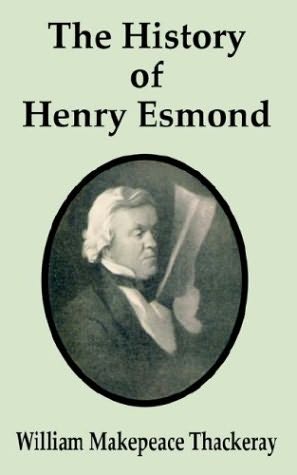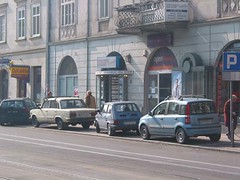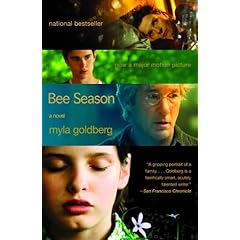Reading Log, January 2007
 As I Iook at the piles of books around me, I am left with the uncomfortable feeling that I didn't finish much of anything in January. Oh well. January is supposed to be all about new beginnings, right??
As I Iook at the piles of books around me, I am left with the uncomfortable feeling that I didn't finish much of anything in January. Oh well. January is supposed to be all about new beginnings, right??This marks the deadline of the end of the "From the Stacks" Challenge as well. Sadly, I have to report that I completed only three of the five books I listed for the challenge. I have no excuse for not having finished War and Peace by now, except that Henry Esmond has been taking its place in my reading plan. I wish I'd stuck with Tolstoy, but I don't think I even picked that book up in January. Also, I should never have placed my Polish book in that challenge to begin with, and as it is, I set W pustyni i w puszczy aside to work on another Polish book that turned out to be too hard.
But why dwell on what I didn't read? The point of this post is to list the books I actually did read during January.
The History of Henry Esmond by William Makepeace Thackeray--The only reason I would want to finish this book is because it is a prequel to another famous work of Thackeray's about the colony of Virginia. But whether or not I actually make it to the end is a toss of the coin at this point.
The Two Towers by J.R.R. Tolkien--I'm rereading this series to superimpose Tolkien over Peter Jackson in my head. I'm about halfway through so far.
Bee Season by Myla Goldberg--I already wrote about this one, and I suspect I'll be offering it up on Bookmooch to any willing takers.
Sklepy Cynamonowe by Bruno Schulz--I tried. I really tried to read this book. But my Polish just isn't up to it. I could offer it on Bookmooch, too, but who would take it?
School Education by Charlotte Mason--This is another reread, which I have just restarted and am discussing with the CMSeries list.
From Dawn To Decadence by Jacques Barzun--This should appear on my list every month of the year, as the plan is to read it across the whole year. I'm already behind, though. I need to read 60-65 pages per month to stay on track, and I'm only on page 50. There is no way to read this book fast, in any case.
The Cat Who Came to Breakfast by Lilian Jackson Braun--Yet another reread (did I say something about new beginnings??? Who am I kidding?). This is the kind of book I keep on my desk and read a page or two when the internet is slow.
Dracula by Bram Stoker--I'm listening to this one at Librivox, while I work on my big crochet project. I've never read it before. I'm not a big fan of the horror genre in general, nor vampire stories in particular. But I am a student of the Victorian era, and the themes in this book interest me (good vs. evil; science vs. faith; materialism vs. supernaturalism). I will have more to say about it later, I'm sure.
Children of the New Forest by Captain Marryat--I'm reading this one aloud to 9yo K. I never included the books I was reading aloud on my list last year, but I think I should, as I am actually reading them. I guess I won't include picture books, though, or I could mention Goodnight, Moon and A Million Chameleons. ( It probably doesn't count as reading if you recite from memory anyway.)
And that's all. I'll be finishing some of these quickly, while others will be ongoing projects. I don't think I'm going to join any more challenges, even though they seem fun at the time. I need to come up with my own plan, and Danielle at A Work in Progress put in the idea of planning my reading a month at a time into my head. I'm thinking it over and I may give a shot for February to see how it works. I surely need some kind of system if I'm ever going to read all the things I want to read!











